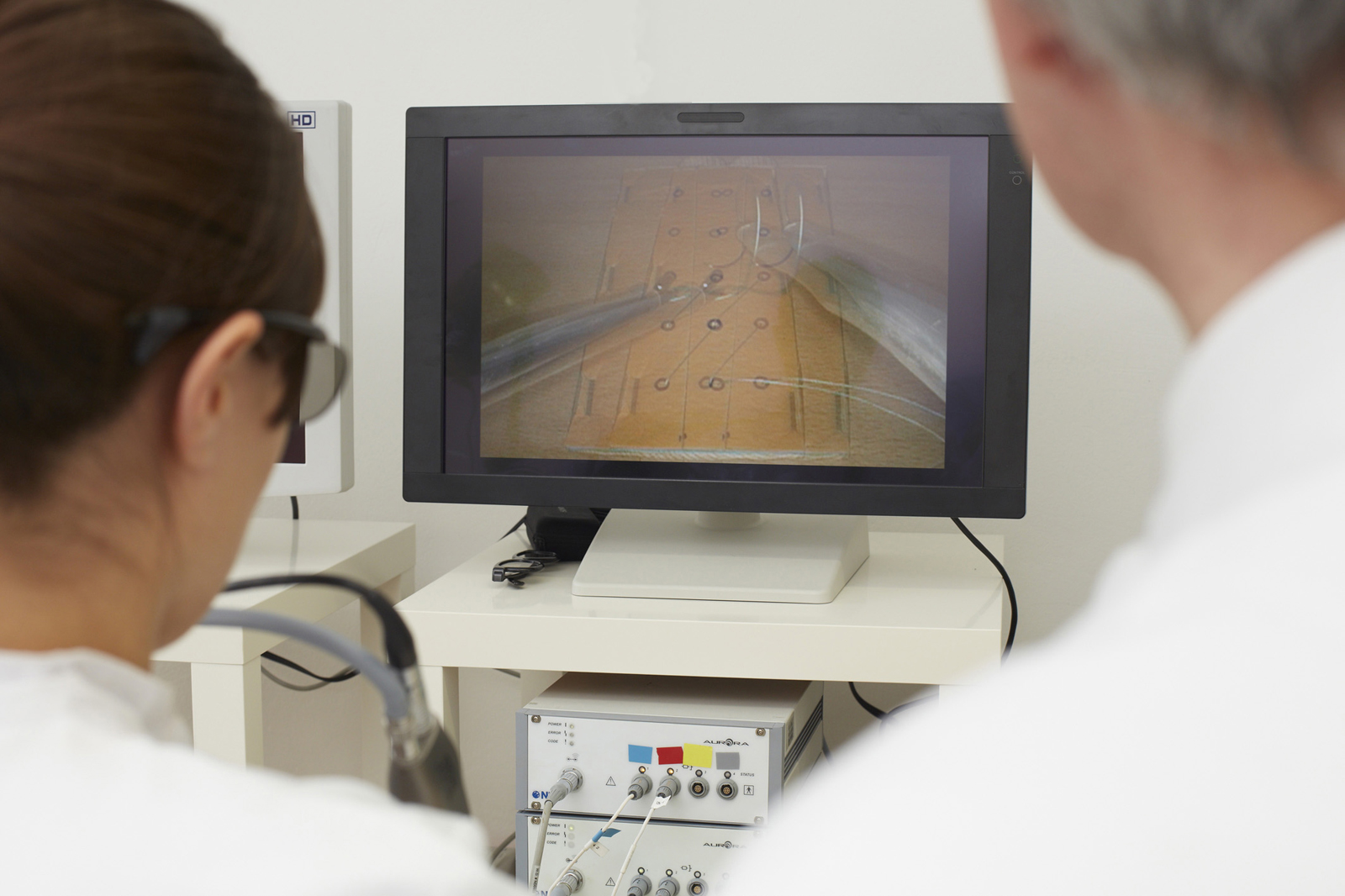Cutting Edge: 3D Tech Boosts Surgical Precision

Moviegoers aren't the only ones wearing 3D glasses nowadays — doctors could benefit from them, too, a new study suggests.
In the past, doctors have been skeptical of using 3D technology in their work, preferring to rely on their own experience. But that may change, thanks to improved 3D glasses and even glasses-free systems. Funded by industry sponsors, the study of 50 surgeons using the new technology showed improvements in surgical precision and speed.
"While the technology still requires some fine-tuning, technology without the need to wear special glasses will increase the popularity of 3D systems in operating rooms," study leader Ulrich Leiner of the Fraunhofer Heinrich Hertz Institute (HHI) in Berlin said in a statement.
Improvements to screens are driving developments in 3D technology. High-definition screens are already available. The next step is ultra-high definition, with a sixteenfold improvement in resolution, according to study co-author Michael Witte of HHI.
To evaluate whether new 3D technology was ready for hospital applications, researchers invited surgeons from the Klinikum rechts der Isar's surgical hospital to test it out. A leading endoscope manufacturer and an international display company funded the study.
The surgeons tested four different systems: 2D, 3D with glasses, 3D without glasses and a mirror-based 3D system. The glasses-free model relied on an eye-tracking camera system that delivered separate images to each eye, creating a 3D effect in the brain.
The images came from endoscopic cameras used in surgery. The doctors practiced a simulated, routine surgical procedure in which they sewed up a wound in a model patient's stomach using a needle and thread. Just as in a minimally invasive surgery, their hands were obscured from view and they relied on the screen to see what they were doing.
Get the world’s most fascinating discoveries delivered straight to your inbox.
"The results were astonishing," Hubertus Feußner, of the Klinikum rechts der Isar university hospital in Munich, said in a statement. The winning surgeon performed the procedure in 15 percent less time and with considerably increased precision, Feußner said.
The most surprising thing was that not only young surgeons benefited, but experienced surgeons also, according to the researchers. The winning doctor has worked at the hospital for more than 30 years and has conducted thousands of operations.
The surgeons in the study rated the 3D glasses system the highest, and the glasses-free system as comparable to the 2D one.
Once the technology is widely available, will doctors begin using it? "There's no doubt that 3D will be a commodity in the future," Witte said.
The study's findings will be presented at a congress of the Association of German Surgeons in Berlin in April. The findings have not been published in a scientific peer-reviewed journal.
Follow Tanya Lewis on Twitter @tanyalewis314. Follow us @livescience, Facebook or Google+. Original article on LiveScience.com.



